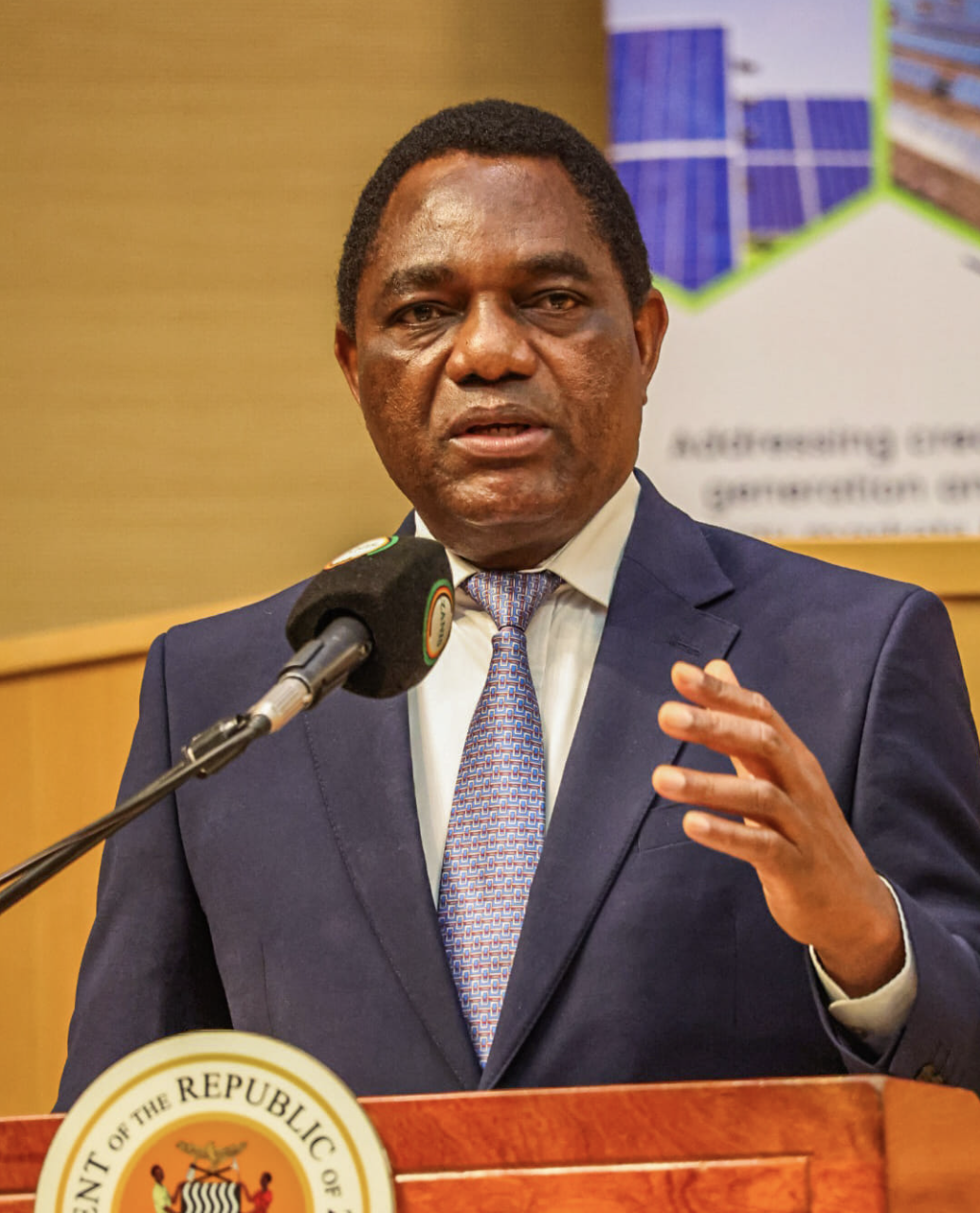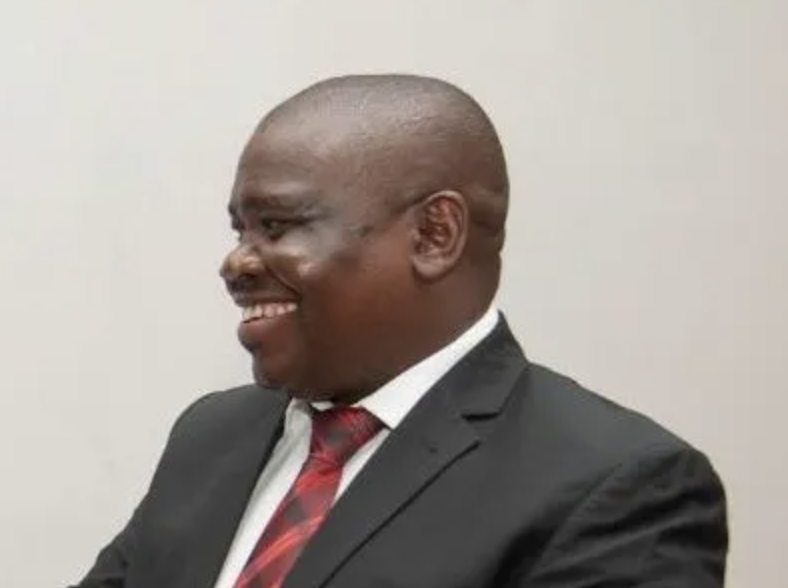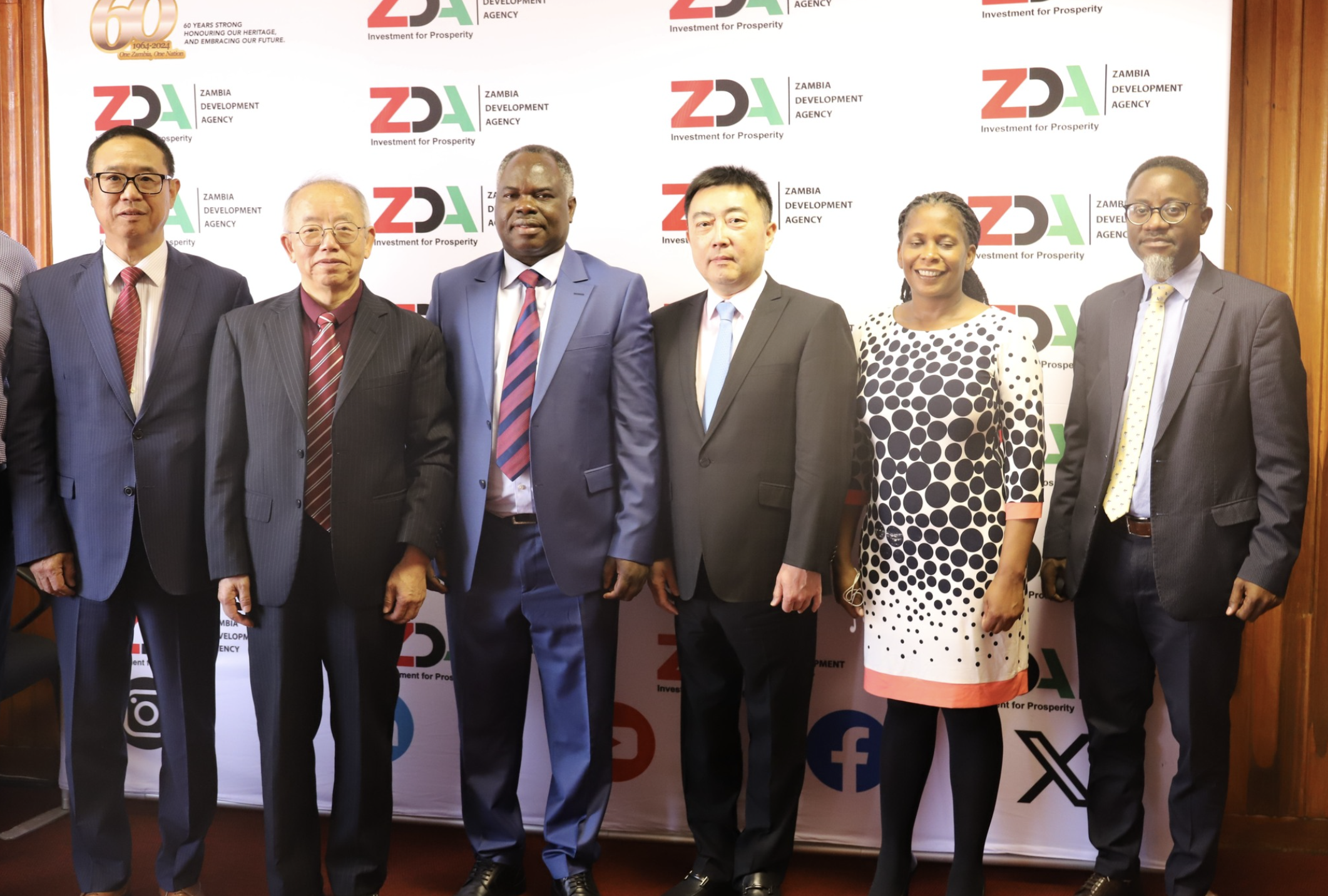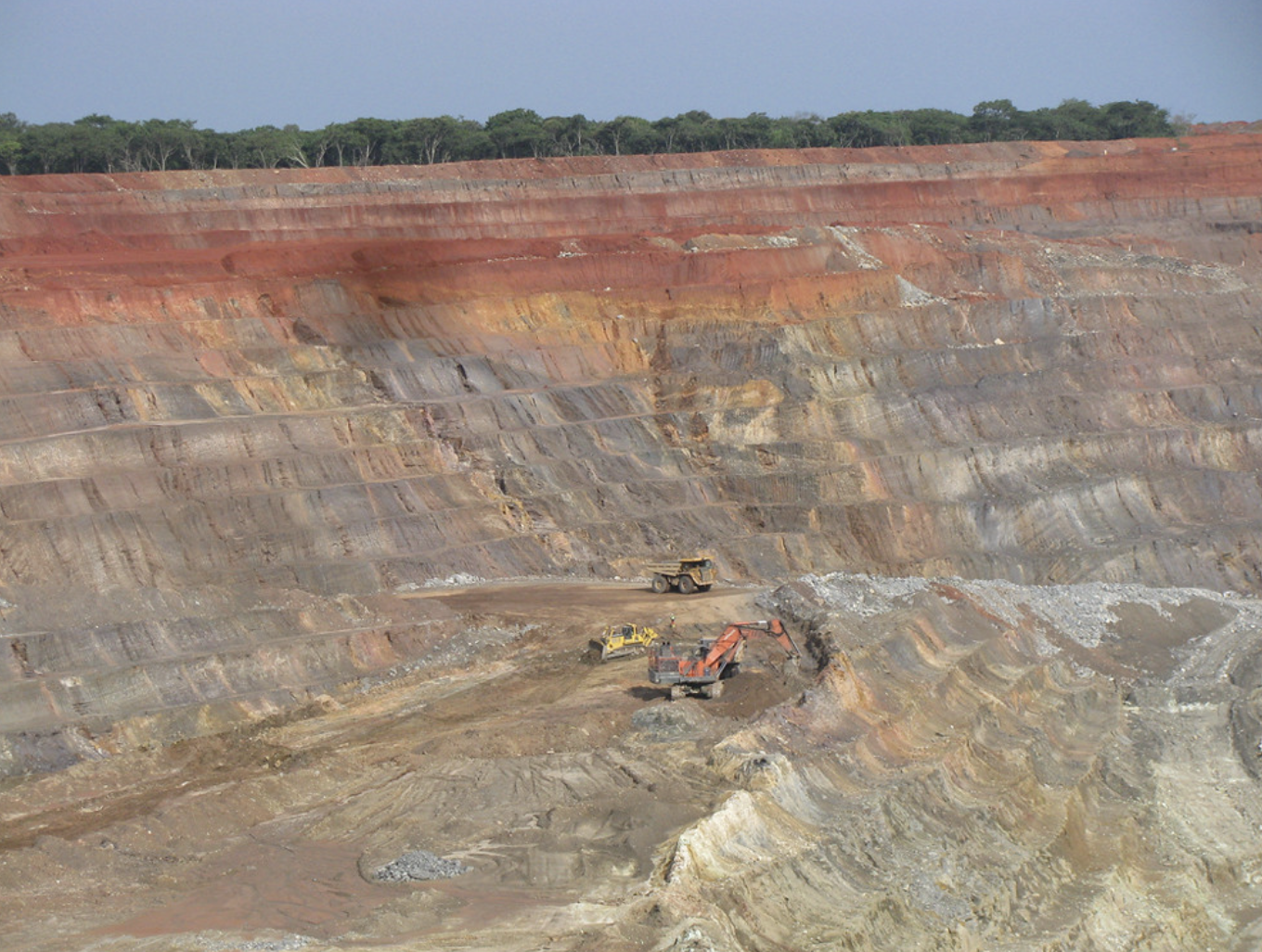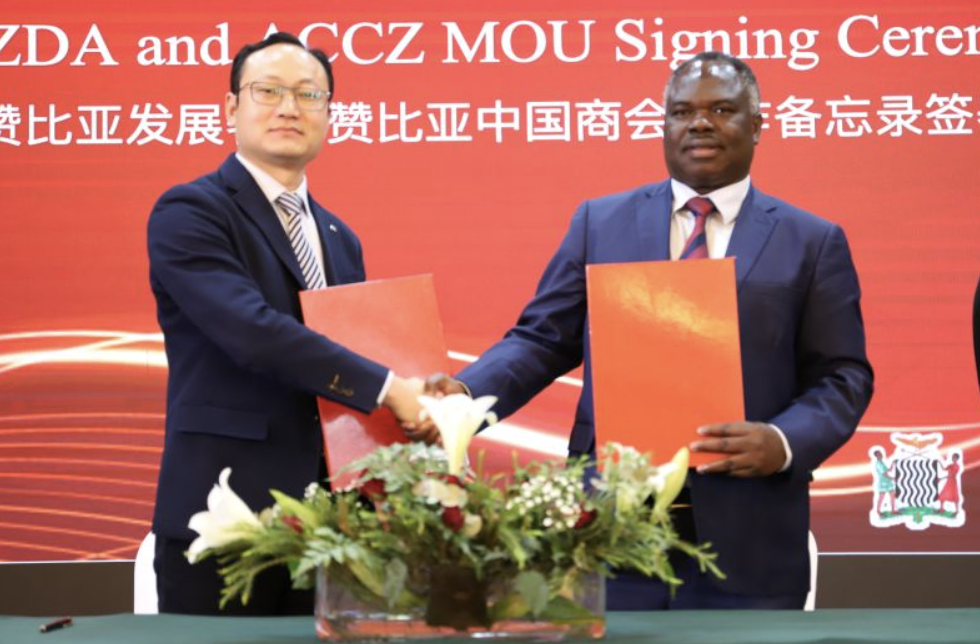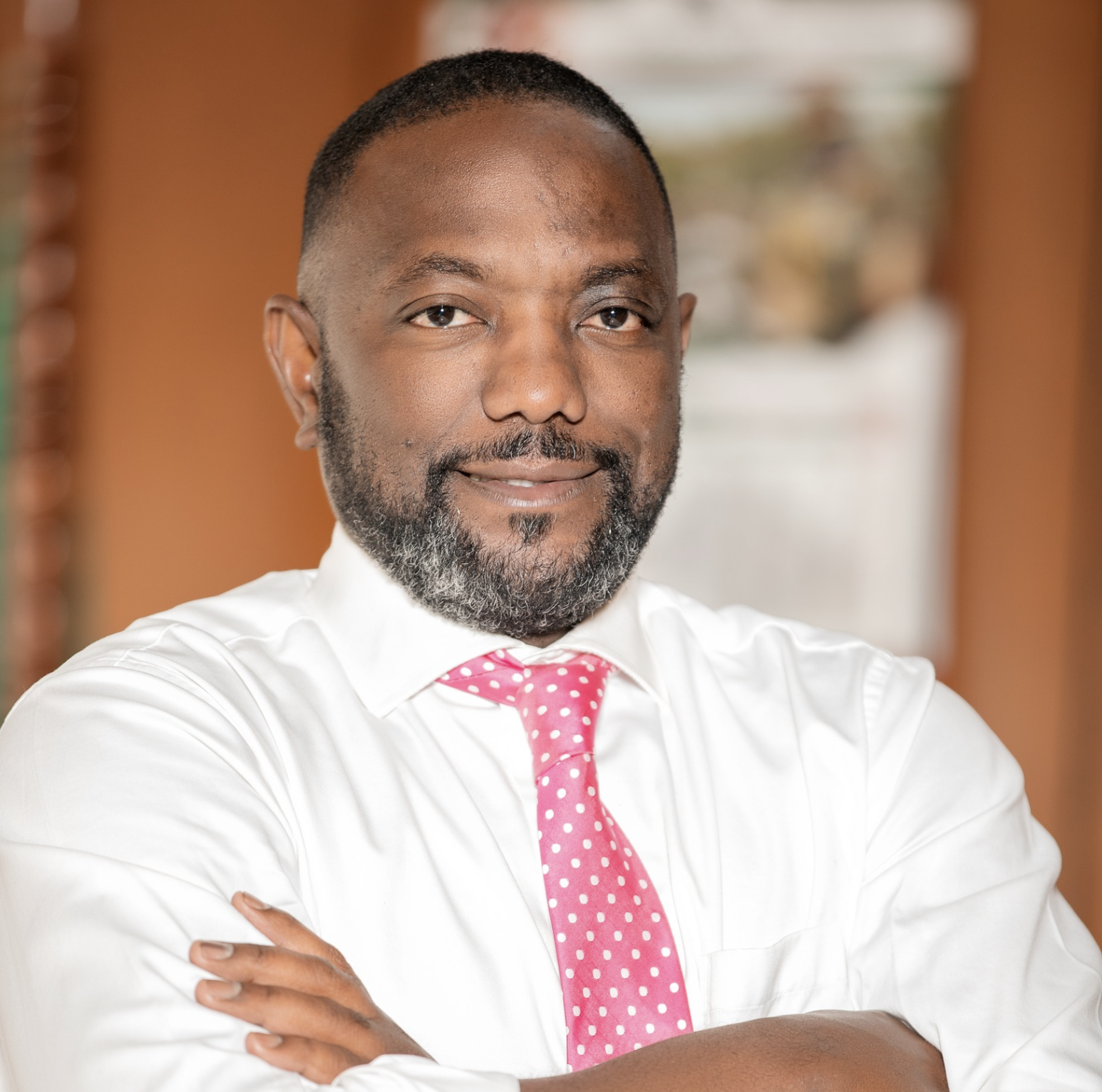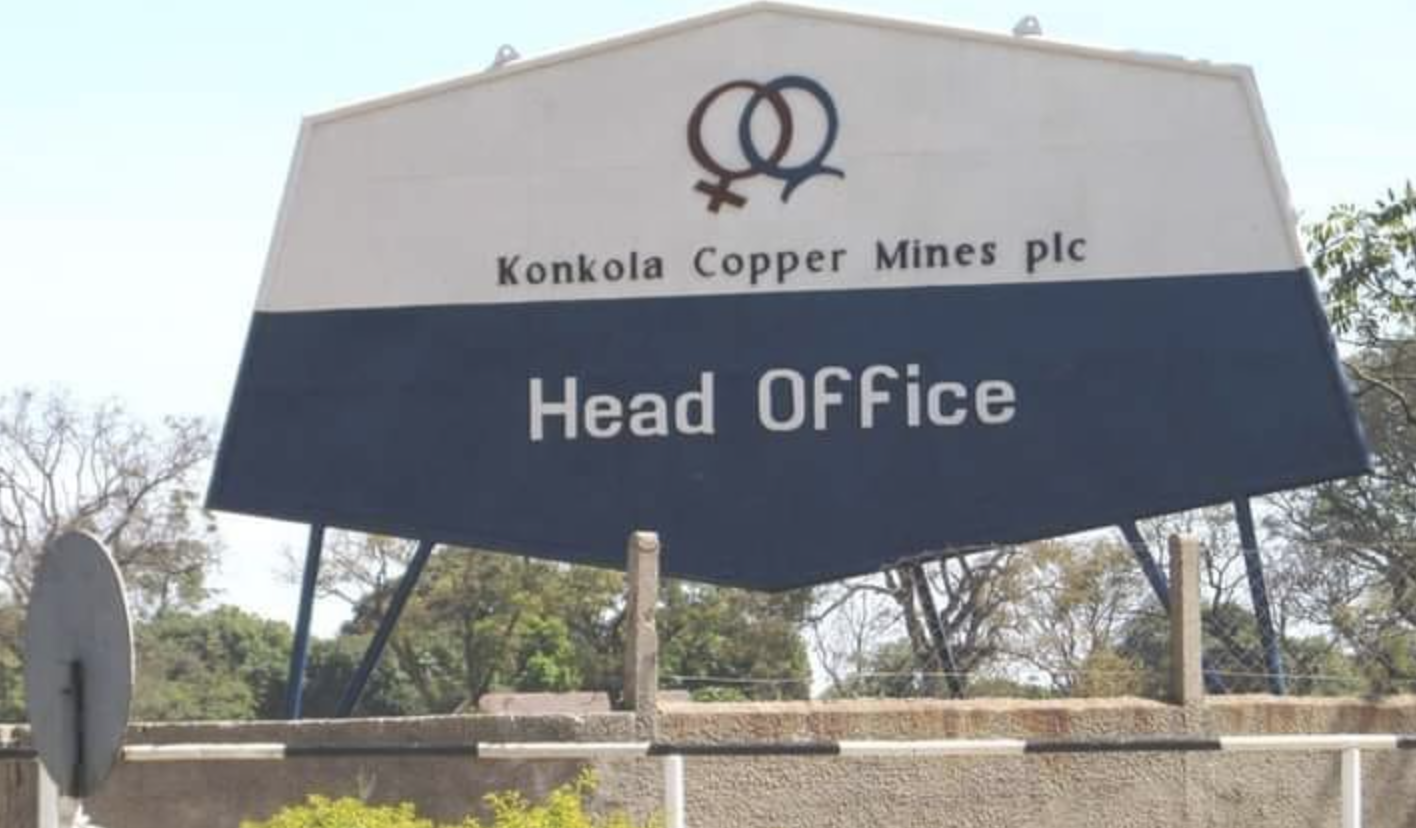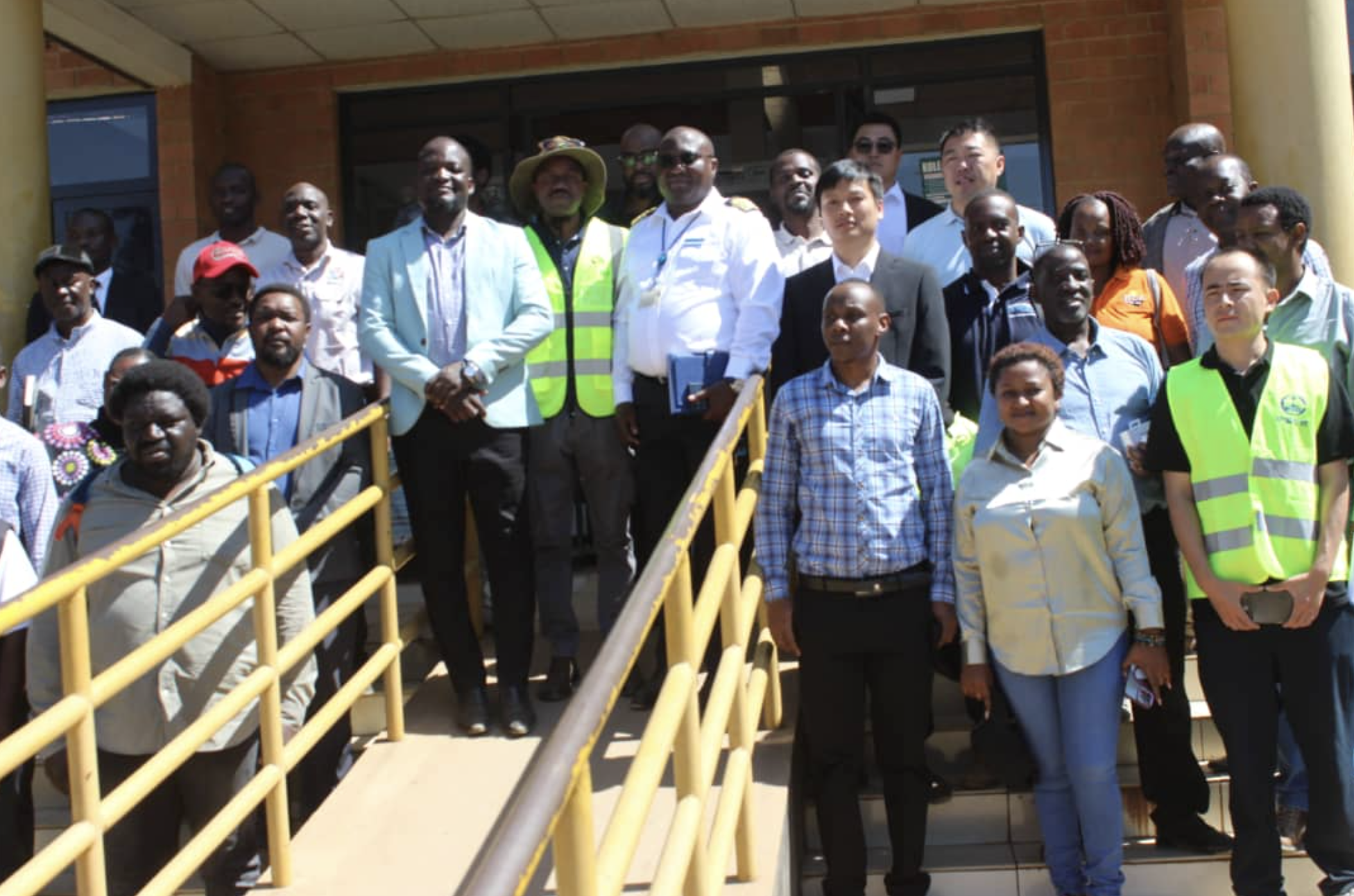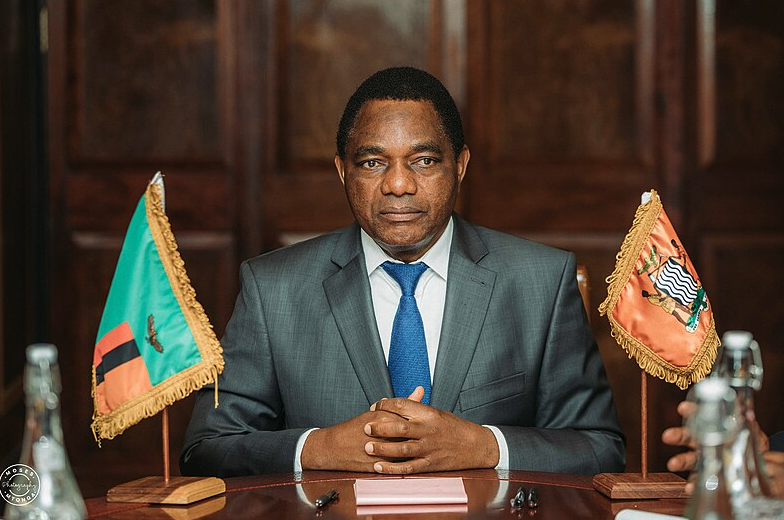President Hichilema celebrates the inaugural opening ceremony of the Energy Forum for Africa
President Hakainde Hichilema has opened the inaugural Energy Forum for Africa conference at Mulungushi International Conference Centre in Lusaka earlier today. The theme for the first event of its kind is “Investment Opportunities in the Energy Sector in Zambia and Africa”.
Commenting on his Facebook page, the President said that he “took the opportunity to inform participants about the various regulatory and legal reforms we've undertaken to attract investment in the energy sector.” The event has also been utilised as a platform to leverage the opportunity for individuals to bring forwards innovative ideas and solutions to address the current energy crisis within the country, turning the challenge into an opportunity for investment by our citizens.
In addition, President Hichilema noted that he will call on financial institutions within the country to create attractive packages that will enable the Zambian citizens to access funding for investment in the energy sector.
Unlocking of Konkola and Mopani Copper Mines a success for UPND Government - Mine Unions
Mine Unions have described the unlocking of Konkola and Mopani Copper Mines as a success for the UPND in the last three years.
Speaking in Kitwe, National Union of Miners and Allied Workers -NUMAW-President SAUL SIMUJIKA said the resolving of challenges in the mining sector will attract investment.
Mr SIMUJIKA said with the way the mining sector is improving and attracting more investment under the President HAKAINDE HICHILEMA, there is hope for much better working conditions for mine workers and more employment opportunities for Zambians in the sector, with Mopani mine alone bringing in 2,000 jobs alone.
This article originally appeared on ZNBC
Nebula George Heinz Aircraft Manufacturing Plans to Setup Manufacturing Plant in Zambia
Zambia Development Agency (ZDA) Director General Mr. Albert Halwampa met with Nebula George Heinz Aircraft Manufacturing a company that wants to set up an aircraft manufacturing plant in Zambia.
The meeting was also attended by other stakeholders from the Ministry of Transport and Logistics, Ministry of Tourism, Civil Aviation, Zambia Environmental Management Agency and Road Development Agency among others.
Nebula George Heinz Aircraft Manufacturing is an established company in China and the United States of America, specialised in the manufacturing of low altitude flying light public aircraft with carrying capacity of up to 16 passengers and is also specialized in the construction of mini airports. The mini aircraft can land and take off on a runway of less than 200 meters.
The company further intends to construct mini airports in Zambia to promote local tourism, cross-country travel and decongestion of the road network. The first phase will target 50 locations followed by the second phase with 100.
Zambia Investor Briefing: July 2024
OVERVIEW
Vedanta Resources is looking for a partner to boost output at its Zambian copper assets. This follows Vedanta’s announcement earlier in the month that it had arranged the financing of nearly $250 million needed to start paying off Konkola Copper Mines’ creditors after it had secured approval from the High Court to take back control of the asset.
State mining unit ZCCM Investment Holdings has revealed China’s JCHX Mining is planning on investing $300 million into Lubambe Copper Mine, having purchased an 80% stake in the asset from EMR Capital.
China’s Huawei Technologies and the Zambian Government have signed an MoU for the construction of 100 ‘smart villages’, as announced at the launch of the country’s first smart village, Muchila, in Namwala District.
‘Tourism Doing Business – Investing in Zambia’, a recently-published report by UN Tourism, highlights key sectors for investment relating to the country’s tourism industry.
Global Investor CEO Frank Holmes has praised President Hichilema’s attitude towards attracting investment while in government. Writing for Forbes, Holmes highlights how the President’s “pro-business approach, coupled with his commitment to economic reforms and anti-corruption measures, has steadily made Zambia an attractive destination for investors. His administration’s efforts to stabilize the economy, enhance governance and foster a conducive business environment are particularly noteworthy.”
A CLOSER LOOK
Mining Developments
Indian billionaire Anil Agarwal’s Vedanta Resources is looking for a partner to boost output at its Zambian copper assets. The company issued a call for expressions of interest to carry out exploration, development and production as part of its $1 billion investment plan at Konkola Copper Mines (KCM). This follows Vedanta’s announcement earlier in the month that it had arranged the financing of nearly $250 million needed to start paying off KCM’s creditors after it had secured approval from the High Court to take back control of the asset.
Talks to sell a stake in the mine – which holds one of the richest copper deposits in the world – to the UAE’s International Resources Holding (IRH) collapsed after the parties failed to agree on KCM’s value. Reuters reported in April that IRH had put in an offer for a 51% stake for over $1 billion.
Elsewhere, state mining unit ZCCM Investment Holdings has revealed China’s JCHX Mining is planning on investing $300 million into Lubambe Copper Mines, having purchased an 80% stake in the asset from EMR Capital. JCHX plans to “inject new vitality” into the mine, including sinking a new shaft.
These developments come at a time when the country’s copper production is expected to grow more than 40% to 1 million tons between 2025 and 2027, as announced by the Finance Ministry in its medium-term budget plan.
In other mining news, First Quantum Minerals (FQM) has commenced operations at its Enterprise Mine. It is on trajectory to become the country’s largest nickel mine. FQM expects Enterprise will rank in the top ten globally for nickel production when it reaches full strength, boosting Zambia’s bid to become a key supplier of battery metals. According to FQM’s CEO Tristan Pascall, “We had another solid quarter in Zambia and with the work achieved to date, both Kansanshi and Sentinel [FQM’s Zambian copper assets] are well set up for the remainder of the year”.
Energy and Technology
Zambia is to build its second-ever coal-fired power plant after approval was granted by the Energy Regulation Board earlier this month. The 300mw facility will be based in the south of the country. Its construction is to be led by Maamba Collieries Ltd, which has secured $300 million in financing for the project. Work is expected to commence in August of this year and be completed by July 2026. The project aligns with national goals to diversify the energy mix and lessen reliance on weather-dependent hydropower, and will be a welcome boost to the growth of the country’s energy sector.
Elsewhere, China’s Huwai Technologies and the Zambian Government have signed an MoU for the construction of 100 smart villages, as announced at the launch of the country’s first Smart Village, Muchila, in Namwala District. Muchila now has a Rural-Star communications tower providing coverage for the village, while Namwala District has a mini solar grid powering a school and clinic.
President Hichilema, who attended Muchila’s launch ceremony as the guest of honour, said in a statement posted to his Facebook page, “This initiative reflects our government’s strategic approach to forming collaborative partnerships, aiming to achieve a digitally inclusive society”. He added, “Through this project and many others, we aim to foster a culture of digital innovation and entrepreneurship, driving economic growth and jobs created at the grassroots level”.
Tourism
‘Tourism Doing Business – Investing in Zambia’, a recently-published report by UN Tourism, highlights key sectors for investment relating to the country’s tourism industry. Executive Director of UN Tourism Natalia Bayona describes the publication as a “catalyst for Zambia’s future growth” which “provides a roadmap for sustainable tourism development, fostering not only prosperity but also job creation, community empowerment, and SME expansion”.
The publication focuses especially on economic growth and sustainable development. It lists the country’s abundant natural resources, cultural diversity, strategic location, business-friendly environment and attractive investment incentives as among the key reasons to invest in Zambia. In his foreword to the report, President Hichilema writes, “Zambia is one of the most peaceful countries on the continent with warm and friendly people ready to welcome people of any race, religious belief, and background to invest in the sector”.
Meanwhile, the Zambia Development Agency (ZDA) Director General Albert Halwampa addressed delegates at the UN Tourism Regional Commission for Africa and the UN Tourism Regional Conference on Brand Africa in Livingstone. He highlighted the numerous investment opportunities available and the status of Zambia as a competitive tourism investment destination. Halwampa also stressed how the ZDA “facilitates both fiscal and non-fiscal incentives to investors including those investing in the tourism sector”.
Foreign Direct Investment (FDI)
The ZDA has signed a Memorandum of Understanding (MoU) with the Association of Chinese Corporations in Zambia (ACCZ) to enhance investment and trade relations between the two countries. This agreement, signed during the inaugural ACCZ Economic and Investment Summit in Lusaka on 12 July, aims to establish long-term investment projects that will contribute to the economic development of both nations.
ZDA Director-General, Albert Halwampa, highlighted the significance of this partnership: “The symposium indicates investor confidence in Zambia, driven by good leadership and stable economic policies.” The MoU encompasses various areas of mutual interest, including trade and investment, infrastructural development, agriculture, mining, and technological advancement.
Long Reads
Top mining companies commit billions to Zambia’s copper industry (Forbes, 02.07.24)
Helen Lubamba, Stanbic Bank Zambia: Critical moment (CNBC Africa, 09.07.24)
AI needs copper. It just helped to find millions of tons of it (The New York Times, 11.07.24)
Africa’s surprising new age of rail (The Economist, 18.07.24)
UPCOMING EVENTS
4-6 September - Africa FinTech Summit, Nairobi, Kenya
Top Mining Companies Commit Billions To Zambia’s Copper Industry
Last week I had the privilege of participating in a YPO (Young Presidents’ Organization) event held in Victoria Falls, Zimbabwe. One of the main topics of discussion was investment opportunities in neighboring Zambia, a country that, despite its challenges, is a rising star on the African continent, due largely to its copper exports. I was honored to meet Zambian President Hakainde Hichilema, whose pro-business and reform-oriented stance has attracted attention from international investors since his inauguration in August 2021.
Zambia, a landlocked country in south-central Africa and the continent’s 17th largest, has shown remarkable resilience. It has a common law judicial system, the same as the U.K. and the U.S.
Economic growth exceeded 4.7% in 2022, despite the pandemic, the Ukraine war and other challenges.
The Role Of Copper In Zambia’s Economic Resilience
Central to Zambia’s economic stability is its mining sector, which accounted for 17.5% of the country’s GDP and over 70% of foreign exchange earnings in 2021. Copper, the country’s main export, plays a pivotal role in this regard.
As many readers are aware, copper has emerged as an indispensable resource as the world accelerates its transition to renewable energy sources. The red metal’s conductivity and versatility make it crucial for various applications, from electric vehicles (EVs) to solar panels and wind turbines. Zambia’s ambition to produce 3 million tonnes of copper annually by 2032, up from around 800,000 tonnes today, highlights the metal’s importance going forward.
In the early 1990s, we were seed investors in Randgold Resources, as we believed in founder Mark Bristow’s vision. Randgold was purchased in 2019 by Barrick Gold, which has a plan to double its copper production by 2029, according to May’s investor presentation.
Major Investments Fuel Zambia’s Mining Boom
Top-tier mining firms recognize this potential and have announced significant investments in the country. Barrick committed nearly $2 billion in October 2023 to boost copper production at its Lumwana mine. A year earlier, First Quantum Minerals unveiled a $1.35 billion investment over 20 years in its Kansanshi mine and an ambitious solar and wind energy project to power its operations.
Another significant aspect of Zambia’s investment appeal is its potential for surplus hydropower, which accounts for over 80% of the country’s energy mix. Zambia shares several large dams with Zimbabwe, and the possibility of harnessing this surplus energy for data centers presents a compelling investment opportunity. Given the increasing demand for data storage and processing capabilities, particularly in Africa, this could be a game-changer.
Hakainde Hichilema: From Business Leader To Reformist President
As I said, I had the honor of meeting President Hichilema, who’s introduced a renewed sense of optimism in Zambia. He holds a Bachelor of Arts in Economics and Business from the University of Zambia and an MBA in Finance and Business Strategy from the University of Birmingham in the UK. Before his political career, he served as CEO of Grant Thornton Zambia.
Hichilema’s pro-business approach, coupled with his commitment to economic reforms and anti-corruption measures, has steadily made Zambia an attractive destination for investors. His administration’s efforts to stabilize the economy, enhance governance and foster a conducive business environment are particularly noteworthy.
President Hichilema’s pro-America stance is another factor that I think could reassure investors. His administration has been actively courting foreign investment, emphasizing the importance of partnerships with American businesses.
Finally, Hichilema has taken steps to push back against Chinese influence, by renegotiating mining contracts, increasing transparency, diversifying investment and restructuring debt.
Independence Day Travel Expected To Reach All-Time High In 2024
As someone who’s done a lot of traveling this summer, the record-breaking volumes have been impossible to ignore. On Sunday, June 23, the Transportation Security Administration (TSA) broke its record for most people screened on a single day, with nearly 3 million individuals passing through airport security.
The trend is expected to continue. According to the American Automobile Association (AAA), a projected 70.9 million travelers will head 50 miles or more from home over the Independence Day holiday period, marking a significant increase from previous years. Air travel, in particular, is setting new records, with 5.74 million people expected to fly to their July 4 destinations.
Having experienced the busyness of airports firsthand, I’m happy to see such vibrant economic activity. The bustling airports and high travel volumes are clear indicators of a strong economy. This surge in travel not only benefits the transportation and tourism sectors but also contributes to the broader economic recovery.
This article originally appeared on FORBES
World Bank Commits $100 Million to Boost Zambia’s Digital Infrastructure
The World Bank has committed $100 million to boost Zambia’s digital infrastructure and expand internet access across the country. Announcing the Digital Zambia Acceleration Project (DZAP), World Bank Managing Director and Chief Administration Officer Wengcai Zhang emphasized the project’s goal of increasing internet access and digitally enabled services.
During a courtesy visit to Zambia’s Technology and Science Minister Hon. Felix Chipota Mutati, Mr. Zhang outlined that the DZAP will be financed through a combination of national and regional International Development Association (IDA) funds, supplemented by $20 million in unguaranteed commercial financing. The initiative will focus on expanding broadband, last-mile infrastructure, and digital public infrastructure to enhance efficiency in both public and private sectors.
Mr. Zhang highlighted the importance of digitalization in high-impact sectors and the nurturing of employment-ready digital skills. He also announced that the World Bank Board is expected to approve the project by March 2025. In the meantime, a Project Preparation Advance of $6 million is being processed to support initial activities.
The project will establish a Project Implementation Unit within the Smart Zambia Institute, aimed at driving cross-government digital initiatives. Mr. Zhang also expressed support for Zambia hosting the World Skills Africa Competition in Livingstone in April 2025, underscoring its global significance.
Minister Felix Mutati thanked the World Bank for its financial support, noting the critical role of the $6 million Project Preparation Advance in bridging gaps in the Technical Education, Vocational and Entrepreneurship Training (TEVET) sector.
The meeting was attended by World Bank Zambia Country Manager Achim Fock and Milner Makuni, Director of Communication in the Ministry of Technology and Science, highlighting the collaborative effort to propel Zambia’s digital future.
This article originally appeared on TechAfricaNews
ZDA and ACCZ Forge Partnership to Boost Investment and Trade
The Zambia Development Agency has signed a Memorandum of Understanding with the Association of Chinese Corporations in Zambia to enhance investment and trade relations between the two countries. This agreement, signed during the inaugural ACCZ Economic and Investment Summit in Lusaka on 12 July, aims to establish long-term investment projects that will contribute to the economic development of both nations.
ZDA Director-General, Albert Halwampa, highlighted the significance of this partnership. “The symposium indicates investor confidence in Zambia, driven by good leadership and stable economic policies,” Halwampa stated. The MoU encompasses various areas of mutual interest, including trade and investment, infrastructural development, agriculture, mining, and technological advancement.
The agreement also aims to create special economic zones in Zambia, tailored to the interest of both parties. ACCZ will assist in identifying Chinese investors keen on establishing businesses in Zambia, while ZDA will collaborate with ACCZ to enhance operations and provide investment incentives. “We are ready to facilitate and ease all investor-related challenges,” Zambia’s Acting Minister of Commerce, Trade and Industry, Rodney Sikumba, said.
The two organisations plan to host business forums in both countries to promote Chinese investment and trade. “This symposium establishes a foundation for strategic business and economic interaction,” Sikumba added.
Cui Hailiang, a representative of ACCZ remarked that “Chinese enterprises are willing to support Zambia’s industrialisation and social development,” showing the support companies already have for Zambia and its industrial future.
The partnership will explore and promote Zambian products for export to China, aiming to extend the market reach in the Asian country. This collaboration signifies a strengthened bilateral relationship and mutual commitment to economic growth and development.
Zambia, Zimbabwe Discuss 24-Hour Border Operations
Earlier this week, Tourism Minister Rodney Sikumba met with stakeholders within the tourism sector to discuss opportunities and resolve queries regarding the proposed 24 hour opening of the Victoria Falls border with Zimbabwe.
It is hoped that the proposed plan will enhance business and investment as well as make passage of tourists easier.
“We are already in talks with our colleagues in Zimbabwe. In a very few months, this border here, Victoria Falls, will be 24 hours.” Rodney Sikumba noted.
Vedanta Resources secures $250 million to settle KCM creditors
Earlier this month Vedanta Resources announced the arrangement of USD 250 million in funding to pay creditors of Konkola Copper Mines (KCM), following the High Court’s decision on June 28, 2024.
This milestone marks significant progress in Vedanta’s efforts to revitalize KCM, one of Zambia’s major mining assets.
The funds will be used to settle debts owed to contractors and suppliers, generating substantial cash flow throughout the Copperbelt Province, particularly benefiting the communities in Chingola and Chililabombwe.
This influx of capital is expected to stimulate local economic growth and create much-needed employment opportunities for residents, reversing years of financial struggle in the region.
Gift Kaunda, Club Secretary, expressed optimism about the positive impact of Vedanta’s commitments. “This development reinforces our confidence in Vedanta’s ability to deliver on its other promises, including over $1 billion for capital injection, a one-time payment of K2,500 to workers, a 20% salary increment, and $20 million annually for CSR activities,” Kaunda said.
KCM has faced operational challenges for several years, and Vedanta’s return signals a potential turnaround for the company and the region.
“This development shows us that with Vedanta Resources back, KCM will regain its former glory, and Zambia will benefit massively,” Kaunda added.
Community members have expressed strong support for Vedanta Resources, recognizing the company’s commitment to the well-being of local communities as it formalizes its takeover of KCM. The anticipated revival of KCM is seen as a crucial step towards economic rejuvenation in the Copperbelt.
“We are more than pleased to support Vedanta Resources as an investor dedicated to our communities’ prosperity. God bless,” Kaunda concluded.
This article originally appeared on Efficacy News
BackChat Season 3 Episode 1: Felix Mutati
This week we are joined by Minister of Science and Technology, Felix Mutati. Tune in as he throws light onto what led him to a life in public service, investment opportunities within the sector as well as work that the ministry is currently doing.
Zambia and Mozambique invest in a joint venture in the energy sector
The Governments of Zambia and Mozambique have agreed to invest in joint ventures in the energy sector.
Speaking during a joint press conference with his Mozambique counterpart FILIPE NYUSI at State House this afternoon, President HAKAINDE HICHILEMA said the Government is ready to work with Mozambique to develop a gas pipeline from that country to Zambia.
He further said the two countries will also explore possibilities of bringing on board the private sector to help fund the gas pipeline project.
And Mozambique President FILIPE NYUSI said Mozambique stands ready to supply fuel to Zambia through the construction of a gas pipeline from Luvuma basin in Northern Mozambique to Zambia.
President NYUSI added that a feasibility study will soon be conducted to explore possibilities of developing the gas pipeline.
He further said Mozambique already has a developed natural gas plant with a Pipeline into South Africa.
This article originally appeared on ZNBC
Zambia Investor Briefing: June 2024
Do you have a news story you would like included in the next briefing? Email us
OVERVIEW
The UAE’s International Resources Holding (IRH), a unit of the country’s most valuable company International Holding Company, is reportedly in talks to buy a stake in Konkola Copper Mines (KCM). According to Chris Griffith, CEO for Base Metals at Metals of KCM’s current owner Vedanta Resources, the company wants to retain majority shareholding in KCM but could sell up to a 30% stake.
Officials from California-based startup KoBold Metals met with President Hichilema to discuss the development of the Mingomba project, formerly known as Konkola West. KoBold aims to produce more than 300,000 metric tonnes of copper annually at the mine, with shaft sinking set to begin in 2026.
Google has entered the Zambian market to revolutionise the Information and Communication Technology (ICT) sector following incentives given by the government. Through its subsidiary Google Cloud, the American technology giant has signed a Memorandum of Understanding (MoU) with the Ministry of Technology and Science which will see the construction of a Center of Excellence in digital transformation, innovation, offering skills development and knowledge sharing.
President Hichilema embarked on a working visit to the UK where he met with King Charles III, government officials, investors and members of the diaspora. During the visit the President received an honorary degree from Heriot Watt University in recognition of his leadership in transforming education in the southern African country.
In welcome news for Zambia’s debt restructuring efforts, international bondholders met early this month to approve the exchange of $3 billion of existing Eurobonds. During his UK trip, President Hichilema met with Alex Garrard of Amia Capital, one of the representatives of the Eurobond holders. There, the President reiterated his commitment to transforming the Zambian economy through investment.
A CLOSER LOOK
Mining Developments
The UAE’s International Resources Holding (IRH), a unit of the country’s most valuable company International Holding Company, is reportedly in talks to buy a stake in Konkola Copper Mines (KCM). Chris Griffith, CEO for Base Metals of KCM’s current owner Vedanta Resources, told Reuters IRH has expressed interest in acquiring the stake and is conducting due diligence on the copper assets. According to Griffith, Vedanta wants to retain majority shareholding in KCM but could sell up to a 30% stake. He said there were other investors seeking the potential to invest in KCM: “We’ve advanced down the road with a number of partners already that are in the process of doing their due diligence”.
Despite reports in March of IRH’s interest in the acquisition of an 80% stake in Lubambe Copper Mine, JCHX Mining, which had previously agreed to purchase the asset, is now reportedly close to concluding a deal on the purchase. According to sources, the Chinese company’s bid to buy the 80% stake from EMR Capital is nearing completion after Abu Dhabi’s IRH gave up its pursuit of the asset. EMR’s CEO Jason Chang told Reuters, “We are happy to state the transaction as announced is on track and we anticipate to be closing in coming weeks”.
Elsewhere, officials from California-based startup KoBold Metals met with President Hichilema to discuss the development of the Mingomba project, formerly known as Konkola West. The company announced its discovery of a vast copper deposit at the site in February, claiming it to be the country’s largest copper deposit in a century. KoBold aims to produce more than 300,000 tons of copper annually at Mingomba, with shaft sinking set to begin in 2026. Bloomberg reported the company could spend $2.3 billion on the project.
Rail and Transport Development Projects
Following collaboration between the Government of Zambia and TradeMark Africa (TMA), the upgrade of the Nakonde border into a one stop border post (OSBP) has officially been handed over to the contractor. The $10.6m UK government-funded project will improve the flow of goods and people along the Dar es Salaam Corridor. It will streamline operations, enhance customs efficiency, and reduce cargo clearance on both sides of the border. According to TMA’s Director of Southern Africa Jovin Mwemezi, “We are happy to be partnering with the governments of the UK and Zambia to implement such a critical trade facilitation project, which has the potential to catalyse regional trade and facilitate intra-regional commerce.”
Elsewhere, work on the Lobito Corridor, a key railway line connecting Zambia and the DRC to the Angolan port, is ramping up. The Lobito Atlantic Railway operator has ordered 275 modern flatbed railcars for transporting containers along the 1,300km long route. Other plans to revitalise the route include upgrading the tracks, locomotives, and freight cars. When complete, the project will greatly contribute to the development of the region’s transport infrastructure and trade connectivity.
Energy Investment
The Government of Zambia has announced an open access policy in the energy sector in a move to revitalise the country’s energy industry following the challenges it has faced during the drought. The policy – which will enable non-discriminatory access to transmission and distribution networks – aims to create a more competitive environment in the sector in a bid to increase investment from private investors and encourage innovation in sustainable energy solutions.
President Hichilema’s Trip to the UK
President Hichilema embarked on a state visit to the UK where he met with government officials, investors, representatives of Eurobond holders, and members of the diaspora. The Zambian president met with King Charles at Buckingham Palace, affirming the deep relations between the two countries. He later journeyed to Scotland to meet First Minister John Swinney, where Hichilema emphasised Zambia’s core foreign policy message of “economic diplomacy to benefit [Zambian] citizens through investment, trade, and partnership”. Bilateral ties between the two nations are strong: Zambia is one of the Scottish government’s four international development partner countries.
His UK trip saw the president receive an honorary Doctorate from Edinburgh’s Heriot-Watt University “in recognition of his leadership in transforming education” in Zambia, including making education free for every person in the country and recruiting nearly 40,000 new teachers. President Hichilema also visited the University of Oxford. There, he attended a Meeting of Eminent Persons at the Blavatnik School of Government, delivered a keynote address, and engaged with young members of the Zambian diaspora.
Foreign Direct Investment
The Young Presidents Organization (YPO) met in Livingstone this month for its annual conference. Among the attendees – which included over 250 global business leaders from 150 countries – was President Hichilema. In his address to the summit the President encouraged YPO members to invest in Zambia, particularly in health, mining, agriculture, tourism and energy, and pointed to the country’s stable investment climate.
In other news, President Hichilema met with the President of the Japan International Cooperation Agency (JICA) Dr Tanaka Akihito at State House. Over the years JICA has played a key role in supporting development projects in Zambia across multiple sectors, including agriculture, healthcare, education, rural development and capacity building. Hichilema said the country aimed to deepen its relationship with JICA and “leverage their technology in areas such as water harvesting, irrigation, and alternative energy”.
Finally, President Hichilema said farewell to outgoing British High Commissioner to Zambia Nicholas Woolley as he concluded his posting. In a statement posted to Facebook, the President described how during Woolley’s tenure the two countries have deepened relations “based on common values such as democracy, the rule of law, liberty, and the fight against corruption”.
LONG READS
Only way is up for G-20 Common Framework after Zambia debt restructuring (The Africa Report, 07.06.24)
How to speed up sovereign debt restructuring (Financial Times, 13.06.24)
Zambia needs copper rethink to achieve sustainable debt, economists say (The Africa Report, 18.06.24)
From Zambia to Nigeria: Cashing in on Africa’s agriculture opportunities (How we made it in Africa, 19.06.24)
Saudi Arabia’s and the UAE’s quest for African critical minerals (The Arab Gulf States Institute in Washington, 20.06.24)
UPCOMING EVENTS
26 June – 2 July - Zambia International Trade Fair, Ndola, Zambia
3-4 July - Mining on Top Africa (MOTA), Paris, France
17-19 July - Africa Impact Summit, Nairobi, Kenya
22-24 July - 2nd UN Tourism Conference on Brand Africa, Livingstone, Zambia
24-26 July - International Conference on Development and Investment in Infrastructure (DII), Livingstone, Zambia
CONTACT US
If you would like to find out more, receive tailored briefings on specific sectors, or send news stories to be included in the next briefing get in touch via info@zambiaisback.com.
Zambia Investor Briefing: May 2024
Do you have a news story you would like included in the next briefing? Email us.
OVERVIEW
Zambia is moving ever closer to emerging from its debt default. Finance Minister Situmbeko Musokotwane announced this week that nearly all of the holders of the $3 billion outstanding international bonds have accepted the restructuring proposal. According to the minister, “Finalising this agreement with bondholders will create the fiscal breathing space necessary for Zambia to remain on a trajectory of sustainable economic growth”.
Abu Dhabi’s International Resources Holding (IRH) is reportedly in talks with the government about the purchase of a stake in Konkola Copper Mines (KCM) from Indian billionaire Anil Agarwal’s Vedanta. According to CEO Syed Basar Shueb, “We are talking to the government because it makes a lot of sense that one party manages Mopani and KCM”.
Turkish company Yeo has entered into a partnership with the Zambian sustainable energy firm GEI Power to invest $65 million in the development of a 60 MWp photovoltaic solar power plant with a 20 MWh battery energy storage in the country.
In an interview with Global Investor’s investment guide to Africa, President Hakainde Hichilema discussed subjects including Zambia’s mining sector, the government’s efforts in the debt restructuring, and green energy initiatives. Also featured in the edition are Zambia’s High Commissioner to the UK Macenje Mazoka, Albert Halwampa and Professor Biemba Maliti of the Zambian Development Agency (ZDA), Finance Minister Situmbeko Musokotwane, and other Zambian government officials and industry leaders.
Minister for Green Economy and the Environment Collins Nzovu spoke to Zambia Is Back’s Choolwe Chibomba about the Government’s response to the ongoing drought, climate change resilience, and the country’s role in the global transition to green energy. The minister also gave an interview with The Guardian where he called for reform of climate financing to help African countries avoid the worse impacts of the climate crisis and stressed that Zambia is “ready for investment”.
Science and Technology Minister Felix Mutati has announced a $54 million investment in Zambia’s information and communications technology sector following a waiver on ICT imports. This was revealed as he welcomed a group from the Common Market for Eastern and Southern Africa (COMESA).
In a boost for the country’s tourism sector, Zambia clinched the title of Best African Leisure Destination at the 2024 Global Traveller Awards.
A CLOSER LOOK
Mining Developments
Syed Basar Shueb, CEO of the UAE’s International Holding Company (IHC), has spoken to the Financial Times about the Zambian ventures of its subsidiary International Resources Holding (IRH). The company broke into the market last year and made headlines with its acquisition of Mopani Copper Mines. Now, Shueb has told the FT that IHC is expected to make about $1 billion of mining acquisitions this coming year. Among them may be Zambia’s Konkola Copper Mines (KCM): IRH is reportedly in talks with the government about the purchase of a stake from Anil Agarwal’s Vedanta. According to Shueb, “We are talking to the government because it makes a lot of sense that one party manages Mopani and KCM”.
Elsewhere, Canada’s Midnight Sun Mining Corp. has announced it is now “sufficiently funded” to carry out explorations in Zambia after closing a $10 million placement. It has previously partnered with the Jeff Bezos-backed startup KoBold Metals to explore the Dumbwa target within the Solwezi copper project. This will allow Midnight Sun “to explore this vast property with the necessary capital and expertise”, according to the company’s marketing and communications director Adrien O’Brien. Drilling is expected to begin in the coming months.
In the US, the White House senior adviser for energy and investment Amos Hochstein has spoken of the importance of countries like Zambia, as well as its neighbouring DRC, in meeting the global demand for clean energy components and power infrastructure, which will be essential to the green energy transition. Hochstein argued the US must encourage mining projects in these countries to ensure “a diversified, sustainable and equitable energy transition”.
Debt Restructuring
Zambia is moving ever closer to emerging from its debt default. Finance Minister Situmbeko Musokotwane announced this week that nearly all of the holders of the $3 billion outstanding international bonds have accepted the restructuring proposal. According to the minister, “Finalising this agreement with bondholders will create the fiscal breathing space necessary for Zambia to remain on a trajectory of sustainable economic growth”.
The International Monetary Fund’s (IMF) Managing Director Kristalina Georgieva had previously said that “The successful implementation of this agreement will provide significant external debt service relief and further contribute to Zambia’s efforts to restore debt sustainability”.
On 7 May a team from the IMF concluded a two-week visit to Lusaka where they were discussing Zambia’s economic policies for its third review of the country’s economic programme, in order to unlock another funding tranche of $180 million. The IMF praised Zambia’s “commendable progress in implementing crucial reforms under the fund-supported program, including significant fiscal efforts in 2023 despite lower mining revenues”.
Despite the punishing effects of the drought on the country’s economy, the Treasury remains optimistic. Its Secretary Felix Nkulukusa recently announced the country’s economic growth is expected to bounce back next year, with GDP expected to expand by about 6% in 2025 and a similar amount in 2026.
The British High Commissioner to Zambia Nicholas Woolley this month praised the progress made to date regarding the debt restructuring in an interview with ZNBC. He also described the country as a “beacon of democracy”, days before the president launched the new National Policy on Anti-Corruption. Hichilema outlined the government’s focus on key areas which will aid the fight against corruption, namely economic expansion, growth, business and entrepreneurship.
Energy Investment
Turkish company Yeo has entered into a partnership with the Zambian sustainable energy firm GEI Power to invest $65 million in the development of a 60 MWp photovoltaic solar power plant with a 20 MWh battery energy storage in the country. The project, which is slated for commercial operation in September 2025, will provide sustainable energy solutions to Zambia’s power deficit. Yeo’s Vice President of Business Development Yasin Duven said the project, which aims to supply at least 65,000 households, “demonstrates [Yeo’s] commitment to sustainable development in Zambia”.
Foreign Direct Investment
Lusaka hosted the China-Zambia High Quality Development Forum this month in an effort to promote cooperation between the two countries. According to Liu Guoyu, economic and commercial counsellor at the Chinese Embassy in Lusaka, 21 cooperation agreements were signed at the forum to a total value of about $1.03 billion. In a keynote speech Hichilema declared the country ready to welcome more Chinese investments that would boost Zambia’s development agenda in sectors such as agriculture, mining, manufacturing and energy.
A Swedish delegation, led by the Minister for International Development Cooperation and Foreign Trade Johan Forrsell, met with Hichilema at State House. The meeting focused on strengthening trade relations and, with Swedish support, improving Zambian resilience in agriculture, green energy, and water harvesting. Sweden has committed over $200 million to its strategy for development cooperation with Zambia over the period 2024-2028.
Elsewhere, State House has marked the 60th anniversary of bilateral relations between Zambia and Japan by hosting Japanese envoy Takeuchi Kazuyuki.
Regional Partners
The beginning of May saw President Hichilema on a state visit to Kenya at the invitation of President William Ruto. There, he addressed the African Union’s (AU) Africa Fertilizer and Soil Health Summit in Nairobi. In his speech he emphasised the need to mobilise capital and invest in the development of agricultural technology, including the need to make fertiliser widely available and affordable across the Continent. On the summit’s sidelines he met with the US Special Envoy for Global Food Security Dr Cary Fowler to discuss the country’s emergency drought situation.
During his trip the Zambian president also addressed issues of regional insecurity, having been invited to speak at the High Level Mediation for South Sudan. Hichilema once again reiterated that “instability anywhere is instability everywhere” and called for a cessation of hostilities in wider Sudan.
LONG READS
Explainer: Does Zambia’s bondholder deal mean it has resolved its default? (Reuters, 01.05.24)
Why African countries are turning their backs on loans from Beijing (The Africa Report, 03.05.24)
Africa’s top companies 2024: South Africa struggles but progress in wider region (African Business, 10.05.24)
Critical Minerals Africa Summit to profile Africa’s investment outlook (African Business, 13.05.24)
Reimagining Zambia’s restructuring in an alternative New York dimension (Financial Times, 16.05.24)
UPCOMING EVENTS
6 June - The Africa Debate, London, UK
7 June - Africa Tech Summit, London, UK
11-12 June - ICA Zambia 2024, Lusaka, Zambia
25-27 June - Africa Hospitality Investment Forum, Windhoek, Namibia
25-28 June - Africa Energy Forum, Barcelona, Spain
26 June - 2 July - Zambia International Trade Fair, Ndola, Zambia
CONTACT US
If you would like to find out more, receive tailored briefings on specific sectors, or send news stories to be included in the next briefing get in touch via info@zambiaisback.com.
Nakonde border to be upgraded into a into a one stop border post
The Government of Zambia have worked with Trade Mark Africa and have officially handed over to the contractor to upgrade the Nakonde border into a one stop border post on 18th June 2024.
The handing-over ceremony was attended by representatives from the Governments of Zambia and the UK, TradeMark Africa, and the contractor. Funded by the UK government, the approximately £8.4 million project will improve the flow of goods and people along the Dar es Salaam Corridor, streamline operations, enhance customs efficiency, and reduce cargo clearance on both sides of the border. The site handover follows the signing of a Partner Support Agreement (PSA) between the Government of Zambia and TradeMark Africa in March this year.
The border post will undergo numerous improvements, including upgrading roads within the OSBP and truck parking yard, constructing additional office buildings and warehouses, and installing a modern x-ray cargo scanner. The project also includes digitising clearance processes and installing smart gates to reduce truck dwell times from 64 hours to less than 10 hours (an 84% reduction). The two and a half days it currently takes to clear cargo trucks leads to significant delays and losses for businesses
The improved trade process that this upgrade will bring, reducing delays and boosting trade operations, will provide potential and existing investors into the country with a great reassurance in the direction that the country is heading in.
BackChat Season 2 Episode 7: Kim Otteby, Umoyo Natural Health
Our conversation this week with Founder and Managing Director of Umoyo Natural Health, Kim Otteby, focuses on the journey of her company since inception, her inspiration behind setting up the business in Zambia and her enthusiasm and passion for health foods. #Zambia #ZambiaisBack #InvestinZambia
Google invests in Zambia
American technology giant Google has entered the Zambian market to revolutionalise the Information and Communication Technology (ICT) sector following incentives given by the government. Google, through it's subsidiary, Google Cloud, has signed a Memorandum of Understanding with the Ministry of Technology and Science which will see the construction of a Center of Excellence in digital transformation, innovation, offering skills development and knowledge sharing.
Government to support investment in pharmaceutical industry
Government says it will support investment in the pharmaceutical industry in order to reduce the cost of importing drugs.
Ministry of Health Assistant Director pharmaceutical Services, MAXWELL KASONDE says the country imports over 90 percent of its pharmaceutical products.
Mr. KASONDE says this is because the country only has six pharmaceutical production companies which are few to meet the demands for pharmaceutical products.
He disclosed that strides have been made in developing a local pharmaceutical strategy that will see more pharmaceutical productions firms in the country.
Mr. KASONDE said this in an interview with ZNBC News when he launched the pharmacy awareness week in Lusaka.
And, Pharmaceutical Society of Zambia, Lusaka Branch Chairperson WAANA SAMULOZELA said unlocking the pharmaceutical industry has the potential to contribute to the economic transformation of the country.
This article originally appeared on ZNBC
Govt approves open access policy on electricity
Government has approved the open access policy on electricity to attract more investment in the energy sector.
President HAKAINDE HICHILEMA says this will see more opportunities for investment in the sector by the private investors and independent power producers.
President HICHILEMA says this will enable the country to enhance more transaction and increase economic activities that have been affected by the drought situation.
He said this when outgoing British High Commissioner to Zambia NICHOLAS WOOLLEY paid a courtesy on him at State House today.
President HICHILEMA thanked the UK government for its continued support to various economic sectors, governance, corruption fight and the attainment of the debt restructuring deal.
And Mr. WOOLLEY reaffirmed the UK Government’s support to Zambia to overcome the various challenges and enhance the relations.
He disclosed that the UK has provided 11.9 million pounds in support of Government’s Social Sash Transfer, emergency nutrition and humanitarian coordination.
This article originally appeared on ZNBC
KoBold Metals to invest US$300m in Mingomba Mine
KoBold Metals says it will invest 300 million U.S dollars to develop Mingomba Mine in Chililabombwe by 2025.
Kobold Metals Africa Chief Executive Officer MFIKEYI MAKAYI says the company is optimistic that it will sink a shaft at the mine by 2026.
Ms MAKAYI says so far 200 million dollars has been invested in developing the Copper Mine which is expected to be the largest in the country.
She says preliminary works have already started and 2-hundred and 71 people have been employed.
Ms. MAKAYI adds that the mine expects to employ about 700 Zambians.
She said this when a KoBold Metals team led by its Co-founders and presidents JOSH GOLDMAN and KURT HOUSE paid a courtesy call on President HAKAINDE HICHILEMA at State House.
And Mr. GOLDMAN said the company is committed to fast tracking the development of the new Copper Mine in Zambia.
Meanwhile Mr. HOUSE said Zambia's policies and business environment make the country an attractive investment destination.
And President HICHILEMA is hopeful that the investments by KoBold metals will translate into bettering people's livelihoods.
He said government will continue to address challenges that may delay the development of the mine or any other project.
President HICHILEMA said the actualization of the investment is because of his continued interactions with investors.
The President also urged the Kobold metals investors to encourage other businesses to invest in the country's energy sector.
Meanwhile Finance and National Planning Minister SITUMBEKO MUSOKOTWANE emphasised that with such investments in the mining sector, the country is poised to attain its ambitious target of producing three million tonnes of copper by 2030.
This article originally appeared on ZNBC
Interview with Hakainde Hichilema President of the Republic of Zambia
Investing in Zambia: Opportunities, Growth, and Sustainable Development Await
Your policies, since assuming office, have undeniably transformed Zambia’s economic trajectory. To what extent has this transformation been aided by global investment, and why?
Our primary goal was to restructure the economy and reignite growth, given its stagnant state prior to our tenure. Central to this endeavour was the imperative of attracting investment. Investment, in all its forms — domestic, regional, and international — stands as a cornerstone of economic development and progress.
We embarked on a multifaceted approach to attract investments, recognising the need to address existing impediments. It was crucial to cultivate an environment conducive to investment, anchored in the rule of law and bolstered by attractive and consistent policies.
For instance, we revamped the mining policy to align with global standards, ensuring competitiveness and stability. This strategic shift yielded remarkable results, with increased in- vestments and commitments pouring into the sector.
Consider the case of First Quantum Mines, which, following policy changes, invested substantially in nickel and copper mining projects, amounting to approximately $1.3 billion. Similarly, Lumina Mines pledged an additional $2 billion investment, reflecting renewed confidence in Zambia’s investment climate.
President Hichilema: “Investment, in all its forms… stands as a cornerstone of economic development and progress.”
Beyond the mining sector, investments have surged in agriculture, tourism, and energy. Small policy adjustments, such as visa fee revisions, have catalysed tourism growth, evidenced by soaring occupancy rates across the country.
In agriculture, we have successfully attracted both domestic and global investors, driving growth and innovation. Likewise, in the mining sector, both brownfield and exploration investments have flourished, promising new opportunities and economic expansion.
In the energy sector, increased investment pledges signal not only support for our domestic needs, but also our ambitions to become a regional energy exporter.
Speaking about the establishment of the Ministry of Green Economy and Environment: were you personally responsible for its creation, and what prompted its formation? Furthermore, what are your expectations regarding its role in attracting foreign investment to bolster Zambia’s economy and enhance the well-being of its citizens?
Indeed, the Ministry of Green Economy represents a novel addition to our government infrastructure, intro- duced during our tenure. Recognising the urgency of addressing climate change and implementing mitigation measures, we took the initiative to consolidate various entities operating in this domain under one umbrella ministry.
This deliberate decision stemmed from the need to streamline efforts and allocate adequate resources and expertise towards combating climate change. Previously, our approach to climate mitigation measures lacked coherence and coordination. Establishing a dedicated ministry with a designated minister and team was essential to focus and intensify our efforts in this critical area.
Moreover, we recognise the intrinsic value of promoting environmentally sustainable practices, especially within industries such as mining and energy. By prioritising green initiatives, including hydro, solar, and wind energy projects, we aim to not only reduce our carbon footprint, but also enhance economic growth.
Furthermore, transitioning from raw mineral extraction to value addition aligns with our vision for sustainable economic development, job creation, and the stimulation of ancillary industries.
“ZAMBIA’S ENGAGEMENT WITH CHINA AND OUR RECENT DEBT RESTRUCTURING AGREEMENT EXEMPLIFY OUR COMMITMENT TO ECONOMIC GROWTH, DEVELOPMENT, AND REGIONAL COOPERATION “
Additionally, the Ministry of Green Economy will play a pivotal role in managing carbon credits in a structured and professional manner, ensuring that revenues generated are reinvested in environmental conservation efforts.
Thank you for shedding light on the recent agreement between Zambia and Chinese businesses, amounting to approximately 3 billion dollars in investment during a recent visit to China. Could you elaborate on the advantages of strengthening ties with China?
Certainly. It's imperative for us, as Zambia, to emphasise that we are open to conducting business with all nations, provided we can find common ground and mutually beneficial arrangements. Engaging with one country does not preclude us from engaging with others — it’s a fundamental principle of our foreign policy. Our foreign policy rests on two pillars: peace, security, and stability, which we advocate for domestically, regionally, and globally, and economic diplomacy, centred on fostering trade and investment. These two pillars complement each other, as stability enables us to focus our resources and efforts on development and investment, thereby addressing the needs of our citizens, including education, healthcare, and support for vulnerable populations.
ZIB’s Choolwe Chimbomba speaks to Minister for Green Economy and the Environment Collins Nzovu for BackChat [watch the full episode here].
Our relationship with China has deep historical roots, predating our independence in 1964. Post-independence, collaborative efforts between Zambian and Chinese leaders, such as the construction of the Tazara Railway, have laid the groundwork for ongoing cooperation. The recent agreement reflects our commitment to revitalising critical infrastructure, including the Tazara Railway corridor, which provides us with vital access to the Indian Ocean — a gateway for trade.
Our engagement with China is guided by four key objectives. First, we seek to mobilise capital to meet our investment needs. However, we emphasise the importance of fair lending terms, as Africa often faces discriminatory lending practices. Second, we aim to leverage Chinese technological advancements to drive innovation and growth across various sectors of our economy. Third, we explore opportunities for joint ventures, particularly in the mining sector, to add value locally and expedite economic development. Finally, we prioritise value addition to our natural resources, promoting sustainable growth and job creation.
Regarding the recent debt restructuring agreement with state creditors, valued at 6 billion dollars, it represents a significant milestone in our economic recovery efforts. By reducing our debt service obligations, we create fiscal space to allocate resources to critical areas such as education, healthcare, and infrastructure. This agreement not only improves our capacity to invest, but also enhances our attractiveness to foreign investors by demonstrating our commitment to fiscal responsibility and sound economic management.
Moreover, our successful debt restructuring sets a precedent for other African countries facing similar challenges. By sharing our experiences and lessons learned, we hope to support fellow nations in navigating their debt burdens and fostering sustainable economic growth. Our collective efforts within the G20 framework underscore the global nature of our challenges and the importance of collaborative solutions.
In conclusion, Zambia’s engagement with China and our recent debt restructuring agreement exemplify our commitment to economic growth, development, and regional cooperation.
This agreement marks a significant milestone in our efforts to address the challenges posed by our debt burden. Initially, when we assumed office, debt stood as a major impediment to our economic progress, stifling growth and development prospects.
“BY PRIORITISING GREEN INITIATIVES, INCLUDING HYDRO, SOLAR, AND WIND ENERGY PROJECTS, WE AIM TO NOT ONLY REDUCE OUR CARBON FOOTPRINT, BUT ALSO ENHANCE ECONOMIC GROWTH”
Through the Zambia Debt Restructuring Project, we have dedicated considerable efforts, resources, and time to renegotiating our debt obligations. This restructuring initiative has yielded substantial results, providing us with much needed fiscal space and flexibility. Over the next decade, instead of facing the daunting task of servicing a 5 billion dollar debt, we will only be required to allocate 750 million dollars —a remarkable reduction that significantly eases our financial obligations.
This newfound financial freedom allows us to redirect resources towards vital sectors such as education, healthcare, infrastructure, and clean water supply. Previously, our ability to invest in these critical areas was severely constrained by our debt burden. However, with the successful debt restructuring, we can now prioritise these sectors and pursue initiatives that promote sustainable development and improve the well- being of our citizens.
Furthermore, the debt restructuring agreement sends a positive signal to foreign investors, enhancing our appeal as a viable investment desti- nation. By demonstrating our com- mitment to fiscal responsibility and sound economic management, we instill confidence in investors, fostering an environment conducive to investment and economic growth.
Our experience with debt restructuring serves as a valuable lesson for other African countries grappling with similar challenges. As a pioneer within the G20 framework, we hope to inspire and guide fellow nations in their debt management endeavours.
This article originally appeared in Global Investor

